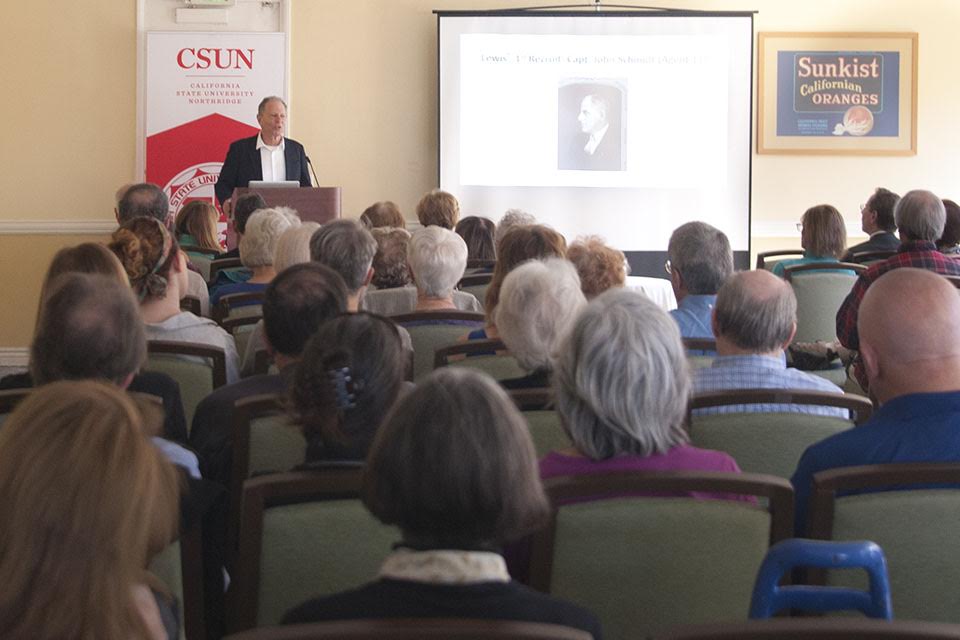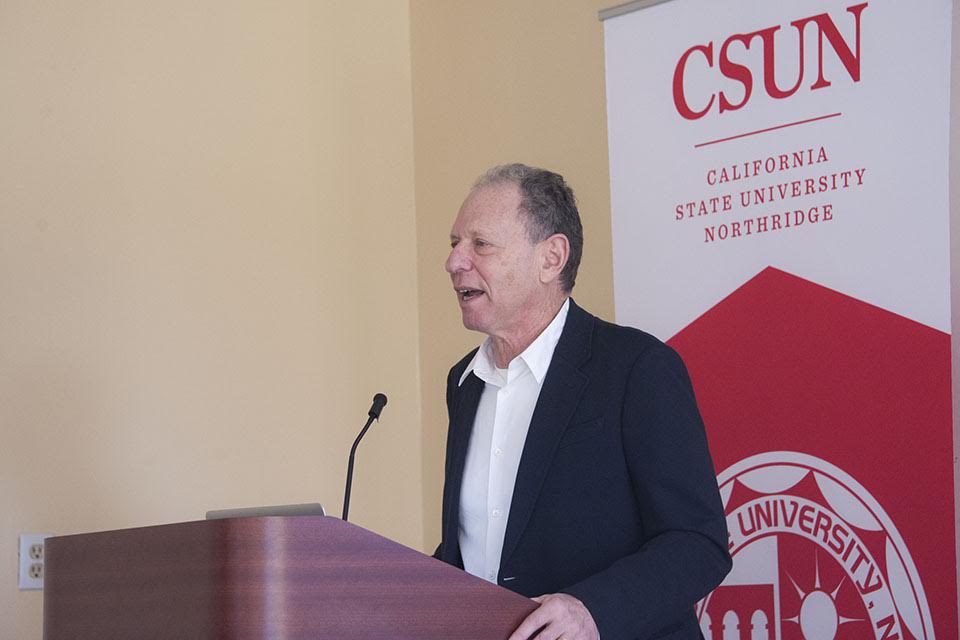Steven J. Ross Tells Chilling Story of Nazis’ Rise to Power in LA
Lewis’ efforts to disrupt Nazi plans were captured by Steven J. Ross, professor of history at the University of Southern California, in his book Hitler in Los Angeles: How Jews Foiled Nazi Plots Against Hollywood and America. Ross’ book has been nominated for a Pulitzer Prize and made the Los Angeles Times bestseller list for five weeks.
California State University, Northridge hosted Ross — who did much of his research for Hitler in Los Angeles at CSUN’s Delmar T. Oviatt Library — on Feb. 4 at the Orange Grove Bistro. The program was sponsored by the Oviatt Library. Ross told the chilling story of Adolf Hitler’s plan to take over Los Angeles and how Lewis, an attorney, stopped it.
At the start of his presentation, Ross showed a map of LA dotted with numerous focal points of the Nazi and fascist homes throughout the area.
“Imagine you are a Jew, and you see this map with all these fascist and Nazi groups around you,” Ross said. “Most of them I couldn’t include, because they all couldn’t fit on the page. Anti-Semitism became contagious.”
Nazi influence was growing in LA, with their first-ever meeting on July 26, 1933. Lewis began to take notice of the increasing frequency of these meetings and, with this knowledge, took action.
“This is how [Lewis came] to be known as ‘the most dangerous Jew in Los Angeles’ by Nazis,” Ross said. “He saw what was going on and wanted to stop it.”
Lewis handpicked spies to infiltrate the meetings, uncover Nazi information and disrupt their plans. “No government official was going to stop the rise of Nazism in Los Angeles,” Ross said. “Lewis took it into his own hands to uncover the information and stop their plan.”
In the early stages of his book research, Ross dug deep into the Oviatt Library’s archives and brought the heroic details of Lewis’ story to life.
“It’s an understatement to say I did research here. I gathered 80 percent of all my information at the Oviatt,” Ross said. “There were more than 100 boxes detailing the intricate accounts, and a lot of them I just didn’t have the time to go through.”
The Oviatt Library holds the archives of the Jewish Federation Council of Greater Los Angeles’ Community Relations Committee. Its vast collection stretches from 1921-2000, with most of the documents not yet processed and cataloged.
When asked by an audience member how this story can impact our outlook today, Ross said: “This story isn’t about Jews protecting Jews. This story is about average Americans taking a stand against fascism, not [by] using violence, but their intelligence.”
Hollywood is interested in bringing the story to the big screen or television, Ross said.
“We’re working out the details, but I am really pushing for a show to be made,” he said. “There is just too much information for a two-hour movie.”
At the end of the program, Ross emphasized the importance of standing up to hate speech.
“When we see people spewing hate speech, we have to stand up and say something,” he said.




 experience
experience